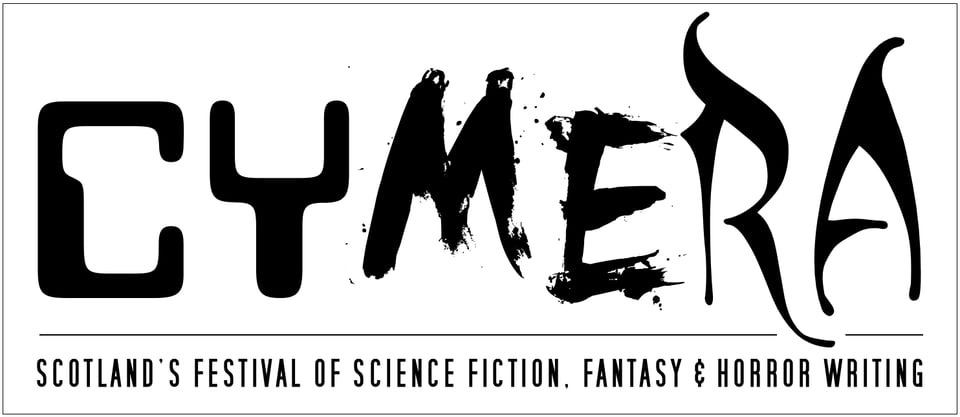Summer-ish
Because of the slow pace of basically everything, I am aiming for seasonal newsletters for the near future, and it is now supposed to be summer, though outside it feels more like October. So hello!
First, some news:
Cymera, Scotland’s Festival of Science Fiction, Fantasy, and Horror writing is happening very soon: from tomorrow, June 6, until the 8th in Edinburgh, and I’ll be there!

I’ll be chairing a panel/interview with Helen Marshall, Lorraine Wilson, and Marian Womack on the Sunday: https://www.cymerafestival.co.uk/cymera25-events/2025/4/10/future-tellers
But I’m also running my Writing Witches: Character, Worldbuilding & Magic Systems twice. The in-person workshop on Saturday is already sold out! But there are spaces available for the Sunday online workshop at 10am: https://www.cymerafestival.co.uk/cymera25-events/2025/6/6/digital-writing-witches
There is also a charity auction at https://www.32auctions.com/cymera2025 that has all sorts, including a critique/feedback from me (plus lots of other authors as well as books and stuff!). It ends tomorrow though, so be quick!
Milford Writing Retreat
A couple of weeks ago, I ran away to the Milford writing retreat at Gladstone’s Library. This week-long retreat happens every May (more info here: https://www.milfordsf.co.uk/). Last year, I finished a novella—the first time I ever tried to tackle a novella—but I’m still, alas, working on edits when time allows. This year, I went in with a singular purpose: to FINALLY finish a novel I started back in 2009. Back before I moved to the UK, before starting a PhD, before sitting my viva in 2015, before becoming a full-time lecturer in 2016, before publishing my first novel in 2020 and cu-authoring two (and now three) non-fiction SFF/H writing guides, and before leaving academia with burn out in 2022. That novel was always there in the background, talking to me. It had been sitting at 85,000 words, but I wasn’t sure how to end it.
So I went to Milford with a plan to just plow through and write an ending, knowing I could fix or change it in edits. And I did. I added 20,000 words to that manuscript and even wrote the 3,000-word “Magic Schools” section of Spec Fic for Newbies Vol 3, which is due to Luna Press at Halloween. So in all, I did 23,000 words in a week (not bad), and I have a full draft of the novel; now that it is all there, with a beginning, middle and end, I can see it and can see what needs tweaks and what works.
Speaking of Spec Fic for Newbies …
How do you write a writing guide?
This isn’t so much about the actual practical how as about the more theoretical how. For the practical how, I mean, we write them on computers using Google Docs to write the first draft on shared files where we can each compile links or ideas or titles or whatever for each topic: pretty much expected for any co-writing projects.
But, if you have an academic/teaching background, people ask Isn’t a writing guide just a collection of classroom lessons? And the answer, is yeah, sorta. We take stuff from lessons we taught in our classes back in the day and insert them into the introductions and history sections, take our experience working closely with writing students and our memories of what they got right and what they struggled with to use for the lists of what’s fun or watch out for, and we even repeat activities we ran that worked (the worked part is vital here!).
People also ask, Isn’t a writing guide just advice? And, again, yeah, sorta. If you possibly never traditionally taught but live as a published author and have gone through writing, rewriting, editing, etc., you’ll have advice for the newer writers (the Newbies) coming up the ranks. You’ll now what to advise they try and what to warn them not to do. But, BUT, the guide shouldn’t be just a list of Do or Do Not because then there’s no real context or instruction. One book out there follows the “Do Not”path: How Not to Write a Novel by Howard Mittelmark and Sandra Newman, which does it but with panache and a well-thought-out structure.
So for SFfN, we have taken our experience teaching and mentoring students from first years through to PhD students along with our experience writing and publishing short fiction, novels, book reviews, teaching materials, and workshops and use it all to find the things that are most important or confusing or cool about the subgenres and tropes we cover in the three books. The structure of the sections (described in the previous newsletter) helps make it all palatable and understandable.
And then there are the jokes. Val Nolan and I can yammer on about stories and writing for HOURS (what do you think our zoom meetings end up being?), and that yammering is usually full of snark. When we write SFfN sections, we add in whatever jokes or asides we think are relevant and then they have to pass the edit. If the other one of us laughs, it’s in. (And then we just have to cross our fingers that the publishing house likes it!) Because, we know from teaching, humor is entertaining, and teaching is nothing if not a performance!
And on that note, it is time for me to go prep for my performances (workshops) at Cymera.